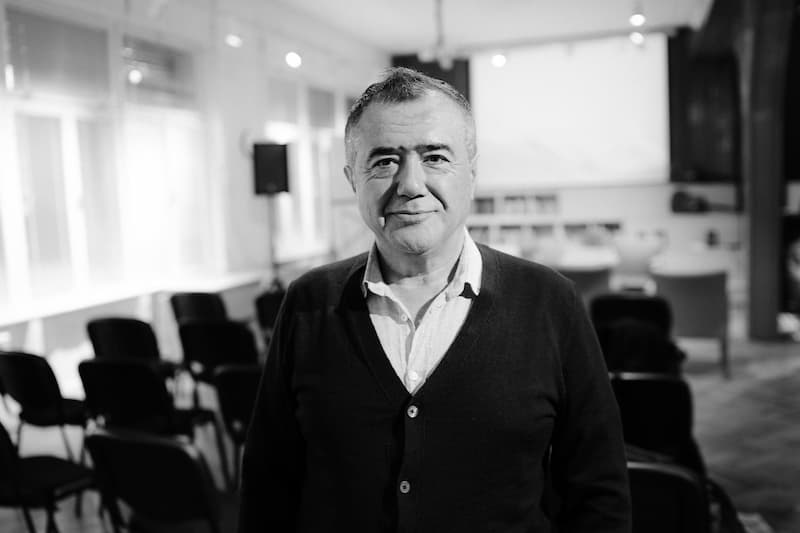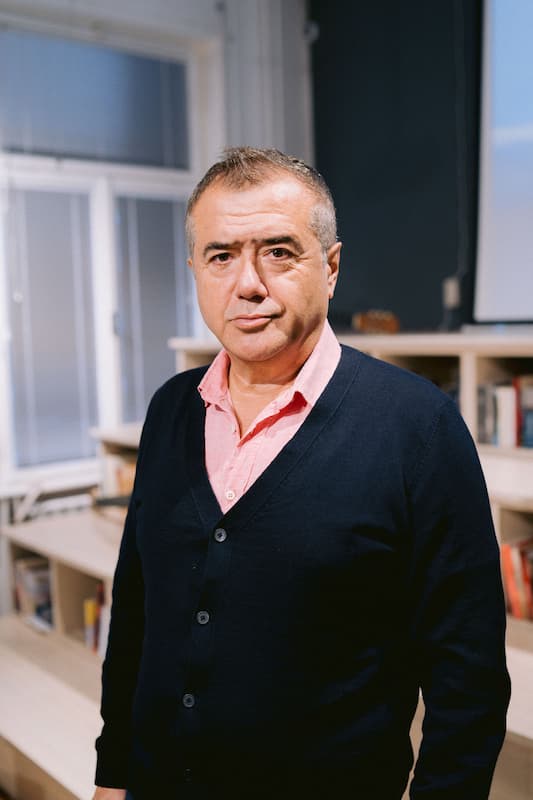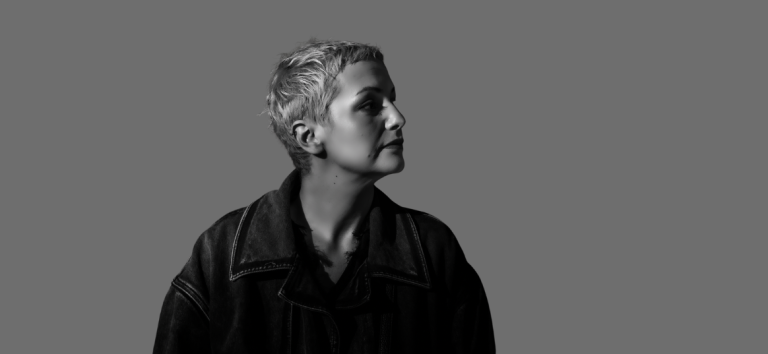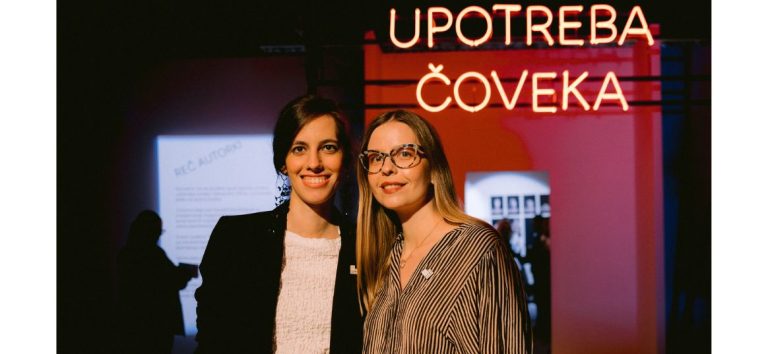Booktown at SPENS, the event that opened the Literature Week at this year’s Jubilee Kaleidoscope of Culture, brought to the European Capital of Culture some of the most important local and regional names from the world of literature, theatre, and music. One of the significant contemporary writers of our scene, Vladimir Pištalo, whose works are translated into many world languages, on this occasion held a promotion of his last published book, The Meaning of the Joker.
The writer Vladimir Pištalo is the author of several novels and works of poetic prose, including Millennium in Belgrade, Manifestos, Picture Book, The Sun of This Day: A Letter to Ivo Andrić and others. And for perhaps his most famous literary work Tesla: A Portrait With Masks, based on which the Tesla, Inventartist play, which you had the opportunity to watch on Doček 2022, was made, the distinguished writer received the NIN Award. This novel makes him one of the most translated writers. Vladimir Pištalo lived and taught world and American history at a college in the USA for more than three decades, then returned to Serbia and now is the head of the National Library of Serbia.
After the great success in the world of the novels Tesla: A Portrait With Masks (16 translations), Millennium in Belgrade (7 translations) and The Sun of This Day: A Letter to Ivo Andrić, which is key to understanding our Nobel laureate Ivo Andrić, a book that simultaneously talks about similarities and differences between Serbia and America appears.
You were a guest in the European Capital of Culture at the Booktown event, so at the very beginning, tell us how you perceive Novi Sad as the European Capital of Culture that won the flattering title at the beginning of the year? Speaking about culture in this city, what would you single out?
First of all, I would like to highlight the different atmosphere of the city, which is definitely felt here. Not only in the different accent of the people and the rhythm of life, but in general, and the way in which culture is approached here. At the beginning of the year, I had a personal connection with Novi Sad as the European Capital of Culture, which is actually one of the first events in the title year. It is a theatre play about Tesla, which is based on my novel Tesla: A Portrait With Masks. It is a very interesting event for an artist, because someone stops a bridge and an important street in the city because of something you did in solitude, writing. So I am really connected to Novi Sad and I was happy about the initiative. I think that the city always benefits in the long term from being the European Capital of Culture.
In your collection of essays, The Meaning of the Joker, you compare Serbian and American culture and draw a parallel between the two nations in a humorous way, i.e., you reveal the facts behind the outlines of these two cultures. What would be the essential differences and lesser-known sides of the mentality of Americans and the Balkan people?
It is interesting that I notice more similarities, my perception is naturally calibrated that way. The similarity would be, for example, Americans have more drama about their schedule (my business schedule) and the ‘cramming’ of daily duties. When I was a grad-student, I finished the studies before most of my colleagues, and I did not have a ‘business schedule’. I guess that is some proof for them that they live their lives well, in an organized manner. And then, as one of my friends says, they go home from college to watch television. Maybe I am being unfair, but in America people really work a lot, even more than our people, although there are people here who are so dedicated to work. But the fuss about the schedule, which is very packed and organized and cannot be changed, is not our characteristic. I honestly think that they are not really as organized as they wish to be. I think they go to watch TV after work (laughs).
So far, your literary opus has not been characterized by essays. After three decades of collecting and recording these essays, how did you decide that the time was right to put them in a book?
These are essays that have been in the making for many years, I think the oldest essays in this book are even 35 years old, three decades for sure. And then I wished to collect them in a book, I spent a year fitting them together, adding new essays. However, not all of them fit into the concept of two units, which was formed while the book was being created. The two units are American and Serbian.
What would be the meaning of the joker in this book?
Joker means surprise. Imagine a miserable life where nothing surprises you. Balaševi, who was born in 1953 and died in 2021, used to say – the dash between the number of years is life. That dash should not be as flat as an encephalogram, but alive, and those jumps and life’s surprises, that is – a joker. Things in life are not predictable and known in advance, but like a joker that can replace any card. That possibility when a miracle pours into life and changes the meaning of things, both perceptually and cognitively and in terms of consequences, and that leaping into the unpredictable flow of life, that is the wild card. It manifests itself in many ways, one of them is humour. All those things, the laughter and unexpectedness in life, that is – a joker. I studied the people and phenomena that mark the joker and analyzed them in American and our culture.

Your essays are written in honour of laughter, and as you often say, laughter is the most civilized music in the world. However, not everyone can be witty. Do you think that humour cannot be universal?
That is a very good question. Anyone can pretend to be serious, to put on a mask of seriousness by lifting their brows, but not everyone can pretend to be witty. And that is one wonderful thing about jokers. Great comedians do not laugh alone, but the people around them laugh. In fact, as soon as a comedian starts laughing at his own jokes, it becomes suspicious and God forbid he is the only one laughing. As for the universality of humour, my guess is that it is universal and there could be reasons for that. For example, think about how Monty Python, who comes from a completely different social climate, was popular with us. Alan Ford was also popular in the former Yugoslavia and Italy, and nowhere else. Charlie Chaplin was very popular in his time, considered for universal humour, physical humour, but let us say my students in America do not like him and do not understand him, they look at his jokes without smiling. Maybe because they have not seen anyone in their generation laugh at it. It happens, simply, that people do not understand each other or that they have different assumptions. So, for example, if you tell a man from Brazil a joke about Mujo, you first have to explain to him some of the premises and who Mujo is, in order that he can understand the meaning of the story. If someone tells a joke, you can immediately see it on people’s faces, and one of the saddest activities is explaining a joke when the natural reaction is missing.
In your book of essays, you wrote that the scent of books was in your blood even before you were born, and that specific scent of an open book in your hands is what no digital book can replace. How do you see the future of the printed book in the era of universal digitization?
I would honestly look for the book wherever I can find it, and offer it in every way it could reach people, even in digital form. People read a lot on Kindle these days, they brag about how light it is, how it can be carried everywhere and how it can fit 100 books, all those familiar arguments. Audio books are also read a lot in America, because they drive cars a lot, so it is more convenient for them. I listened to a lot of books, which I skipped in my intellectual development, while driving in the car. Who would read Moby Dick or Don Quixote today? But when we talk about opening a book as an object with its specific scent, it is irreplaceable. It is possible that new generations will prefer other forms, but I personally prefer the scent of a book. However, I do not impose it upon anyone. I think books, or rather stories, will survive like cockroaches. Because stories are part of our DNA. Humans were created by the discoveries of fire and stories and that cannot be lost.
You lived in America for about three decades, you taught world and American history at Becker College in Massachusetts, but you returned to Serbia where you are now the head of the National Library of Serbia. What experiences from the work of American libraries can be transferred to work in the National Library of Serbia?
I am not sure I could convey everything, but something I certainly can. The openness of American libraries to the needs of citizens, which even goes beyond caring for books and just publishing them. There, the library is really a kind of social centre, which is what we here at the National Library strive to be. One cultural centre, in addition to everything we are. We organize exhibitions and promote new editions and ideas, we organize talks on different topics, concerts, we will also organize theatre performances on the topic of books, etc. I got a lot of inspiration for all this from American libraries, which are the most democratic places, institutions where everyone is welcome.

You have a significant pedagogical experience, your novels are read in various European languages and now you are the director of a large institution. In which role are you most natural?
Without any hesitation, in the role of a writer.
When you wrote the book ‘Tesla: A Portrait With Masks’, about the life of a world-famous genius, could you have guessed that it would be so successful and that you would receive the NIN Award for it?
No, I really had no idea that it would attract so much public attention. I was in America when I won the award and I was woken up by a call at four in the morning from the late Milan Vlajčić. I do not think it was daylight yet. I knew the call might or might not happen, so I was not that shocked. I know that I reacted with the question ‘what are my obligations and obligations to other people now?’ It was not a joy itself, it was all very nice when I came here, the reward was unexpected, it had an element of joker and the book extremely attracted attention. Numerous literary evenings followed, which until then I did not consider a professional part of my life, as well as numerous interviews, etc. The book continued to sell even after the NIN Award, which brought a new level of popularity. It is interesting that people are still looking for it after 12 years, all over the world.
You are the winner of several prestigious awards, including the aforementioned NIN Award. How do you perceive these recognitions and will they be an additional responsibility?
Awards mean getting attention, which is not a bad thing for a book, because if you wrote it, you wrote it to get readers’ attention. Therefore, a book needs a prize, so a prize needs a book.
Are you one of those writers who write in a wave of inspiration or do you still think about every sentence as you put the words together? What does your creative process look like?
I correct and change each sentence until I am satisfied. I write several times a day, and accumulate a significant number of hours of work. When it comes to inspiration, I would warn young writers the following: do not expect to be sitting by Lake Como gazing into the blue and sipping a glass of barbaresco, and inspiration will strike by itself. No, time is slipping away, time is stolen, and, as Thomas Mann said, one should work in a series of small inspirations and then additionally work on a sentence, a paragraph, a page, a chapter and so on daily.
What are you currently reading and what books would you recommend?
Kad sam bio dečak, čitao sam sedam knjiga istovremeno i sad se polako tome opet vraćam. Preporučio bih odličnu nigerijsku spisateljicu Čimamandu Adiči i njenu knjigu Amerikana, koju i sam trenutno čitam, jer osim što divno piše, jako dobro poznaje Ameriku i ljude. Čitam trenutno i Belu Durancija i njegove uspomene o mladosti iz Bača i Subotice (Od Bača do dudove šume u Subotici, 2021.), on je veoma izuzetan istoričar umetnosti. Takođe čitam i Andrićeva Pisma iz 1920, ali i Antologiju kineske proze 20. veka.
When I was a boy, I read seven books at a time, and now I am slowly getting back to it. I would recommend the excellent Nigerian writer Chimamanda Ngozi Adichie and her book, Americanah, which I am currently reading, because apart from her wonderful writing, she knows America and its people very well. I am also currently reading Béla Duranci and his memories of his youth from Bač and Subotica (From Bač to Mulberry Forest in Subotica, 2021), he is a very exceptional art historian. I also read Andrić’s A Letter from 1920, and the Anthology of Chinese Prose of the 20th Century.
Finally, tell us what we will read next from Vladimir Pištalo?
I am currently working on a novel that should be called Song of Three Worlds. A section was published in the Nova Misao magazine, published by the Novi Sad Cultural Centre (KCNS), and despite the fact that it is ungrateful to talk about the time, I hope that the novel will be published next year.
Author: Marina Marić
Photo: Vladimir Veličković








